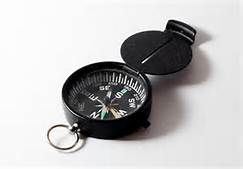Intelligence
Are You From My Planet? Why the Gifted May Seem Goofy
Why the gifted ask odd, off-topic questions-- or make equally strange comments.
Posted November 25, 2013
In my last article, I addressed the case of gifted individuals who may seem, paradoxically, to be a tad gullible—at least to others who may work with them. The trouble, I attempted to point out, is that those co-workers or peers may not truly understand the full depth of the thought processes of that gifted student; or, alternatively, they have a hard time keeping in mind that even gifted students (who typically seem to know so much) may still have gaps in knowledge. These issues might then cause the “gifted” person to seem less than so on certain occasions. 

In my last article, I addressed the case of gifted individuals who may seem, paradoxically, to be a tad gullible—at least to others who may work with them. The trouble, I attempted to point out, is that those co-workers or peers may not truly understand the full depth of the thought processes of that gifted student; or, alternatively, they have a hard time keeping in mind that even gifted students (who typically seem to know so much) may still have gaps in knowledge. These issues might then cause the “gifted” person to seem less than so on certain occasions.
But what is a teacher (or parent, co-worker, peer, etc.) to do when a gifted individual asks a question that seems utterly, well,… nonsensical? A question that makes him look—not so much uninformed or eveninnocent, per se—but rather “scattered” instead of “gifted.”
Consider this scenario, described to me by a reader last week:
I am a second year teacher in middle school. I teach English to 6th graders and I have both the high [Pre AP level] and the low sections. I had a situation occur recently that I’d like to get your take on. Last week, I was leading the students through a discussion of some background material about the Great Depression to get them ready for the next novel we’ll be studying. It was going fine: along the way, I answered any questions that came up; I asked some of my own; I put notes up on the board for them see; I made sure to refer to things we’d studied before so that they could connect the new material to the old. Basically, I did all of the ol’ “checking for understanding” strategies like a good teacher should.
And then BAM! out of the blue, one of the students asked a question that made absolutely no sense whatsoever, something like “What kinds of foods did they eat then?” It caught all of us off guard, me and the other students in the room. I mean, we weren’t talking about food, we hadn’t been talking about food, so I have no idea where that question came from. And the thing is, I’m pretty sure he wasn’t asking it to be funny or distracting because he had a real earnest look on his face, and he’s not the class clown type anyway. Still his question was so off base, so out of nowhere, that I wasn’t sure what to do about it. I wound up answering his question briefly so we didn’t get off track with the rest of our discussion, but when I was done I could tell something still wasn’t right. We went on but I could tell he was still confused about something.
This isn’t the first time this kind of thing has happened, even with other kids, but each time it does, I think I’m just as confused about how to handle it as the poor kid who’s asked that bizarre question. So what am I supposed to do when that happens? Any ideas?
Surely, any number of other teachers or parents reading this article right now can recall occasions when this sort of thing has happened— the “What The...?!” question, if you will. But assuming these questions are not a thinly veiled attempt merely to garner attention, how should they be handled?—especially when, like the teacher above, answering the question may only add to the child’s (or class’) confusion.
Here’s one approach to consider: Rather than answering that odd, out-of-the-blue question, ask the child instead, “What made you ask that question?” Here’s why this might work.
Using the scenario described above as our reference point, it’s clear that the class as whole was on track with the teacher’s background material discussion. She checked periodically for understanding and, no doubt, had some logical way of organizing her instruction about the Great Depression. Presumably, as she moved from one point to another, the class moved with her—from, say, the causes of the Depression, to its effects on everyday life, to a brief bit about who suffered more perhaps, etc. The vast majority of the class kept up and asked questions that seemed appropriate, questions that indicated they were in tune with her.

Using the scenario described above as our reference point, it’s clear that the class as whole was on track with the teacher’s background material discussion. She checked periodically for understanding and, no doubt, had some logical way of organizing her instruction about the Great Depression. Presumably, as she moved from one point to another, the class moved with her—from, say, the causes of the Depression, to its effects on everyday life, to a brief bit about who suffered more perhaps, etc. The vast majority of the class kept up and asked questions that seemed appropriate, questions that indicated they were in tune with her.
Except for that one child with that one weird question. So what happened to him?
The answer is simple: where the majority of the class took a turn with the teacher and went from one point of the lecture to the next, this one child did not. Maybe he was thinking about something else, like what was going to happen after school that day. Maybe he was out of the room, getting water or using the restroom. Maybe he was still trying to recall something about that older material the teacher had mentioned. Regardless of the cause, where the class and the teacher took a right-hand turn to move from Point C in the conversation to Point D, this child did not.
And so when he asks his “strange” question later on, at Point G, he sounds off base—or perhaps the comment he makes sounds to the others like an utter non-sequitor. If the teacher merely answers his question (or ignores his comment) and then moves on, this child is likely to remain confused because he is still lost—drifting somewhere between Point B and C or D, where the class left him behind.
By asking this child, “What made you ask this question?” the teacher gives the student a chance to voice aloud where he got lost in the flow of the conversation. Answering this question forces him to retrace his steps aloud so that she can hear where he failed to make that critical turn in the lecture. If she then clarifies that point, it’s much more likely that the child’s thinking can be clarified and all the other pieces will then fall into place.
Regardless of giftedness, this strategy is a good one to use with any person or student when that out-of-the-blue, What The...?! question arises. But with gifted students in particular, it may be even more critical. As I wrote in the last article, gifted students often have so much on their minds, often have so many different ways of considering new material that they may, in fact, be more likely to get distracted, thus losing their way in a discussion—even as their peers march steadily along with the teacher.
And then that gifted student is considered, not gullible this time, but maybe just a little ...odd.




